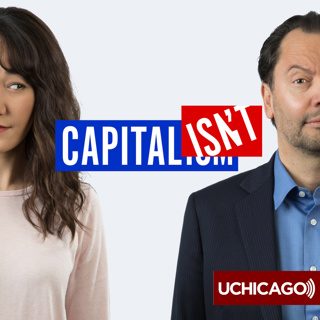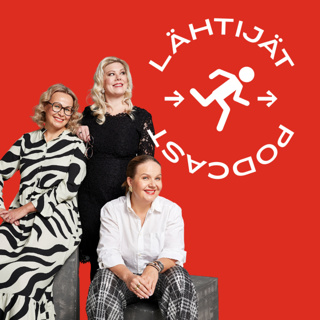
Should We Let Walmart Regulate Itself?
In the last few weeks, we've seen two examples of seeming corporate self-regulation. One is Walmart's decision to end all handgun ammunition sales, and the other is the four largest automakers going around the Trump administration's less stringent fuel emission standards to cut a private deal with California that is closer to Obama era-emission standards. But there's an important overarching question to these two stories. Should companies really be taking it upon themselves to address issues when the government doesn't do a good job policing? Should these businesses be punished or praised?
12 Syys 201936min

Shareholders vs. Stakeholders
Many are praising a recent Business Roundtable announcement that corporations should serve stakeholders as well as shareholders. On the surface, this may seem like a historic reversal of the status quo that has held since Milton Friedman's famous "shareholder primacy" theory was put forward in the 70s. But it's not that simple. On this episode, Kate and Luigi layout the history of this theory, revealing that it's really been around for as long as we've been asking the most fundamental question in business: what is the purpose of a corporation? They explore that question, and interrogate the possible underlying motives behind the Business Roundtable's decision.
29 Elo 201936min

Are Stock Buybacks Evil?
Are stock buybacks evil? A lot of politicians seem to think so. Senators Bernie Sanders and Chuck Schumer wrote an op-ed in the New York Times this year calling for a limit on corporate buybacks. On this episode, Kate and Luigi break down what stock buybacks really are, how long they've been around, and whether we should ban them.
15 Elo 201935min

Universal Basic Income: Why and How?
If you've been paying attention to Andrew Yang's Democratic presidential campaign, you're probably familiar with the concept of universal basic income. On this episode, Kate and Luigi give the economic outlook on how a UBI might work, or not work, and investigate how automation and techno-anxiety are driving the conversation.
1 Elo 201940min

The Student Debt Crisis: There's No Such Thing As A Free College
With Democratic presidential candidates making the student debt crisis one of the central issues of the 2020 race, Kate and Luigi give an in-depth economics look at the ideas of free college tuition and debt forgiveness, explain the history of how we got to into this student debt crisis, and debate some solutions for how to get out of it.
18 Heinä 201937min

The Mickey Mouse Monopoly Club
Last episode, Kate and Luigi discussed how the patent system creates a temporary monopoly designed to make the incentives to innovate. But the real question is does the patent system, and our entire system of intellectual property for that matter, actually accomplish that goal? We start to answer that question by investigating one of the most powerful figures in intellectual property...Mickey Mouse.
4 Heinä 201934min

Luigi Submits A Patent
After our series about the dangers of monopolies, we're going to investigate a situation in which the government actually works to create monopolies on purpose: the patent system. On the first of two episodes, Luigi and Kate examine whether our current patent system is helping or hurting capitalism.
20 Kesä 201933min

Regulating Facebook and Google Pt 3: Tyler Cowen Rebuttals
In part three of our series investigating how digital platforms like Facebook and Google should be regulated, Tyler Cowen from George Mason University argues to Kate and Luigi that more regulation may not be the answer to all our questions about digital platforms.
6 Kesä 201934min






















